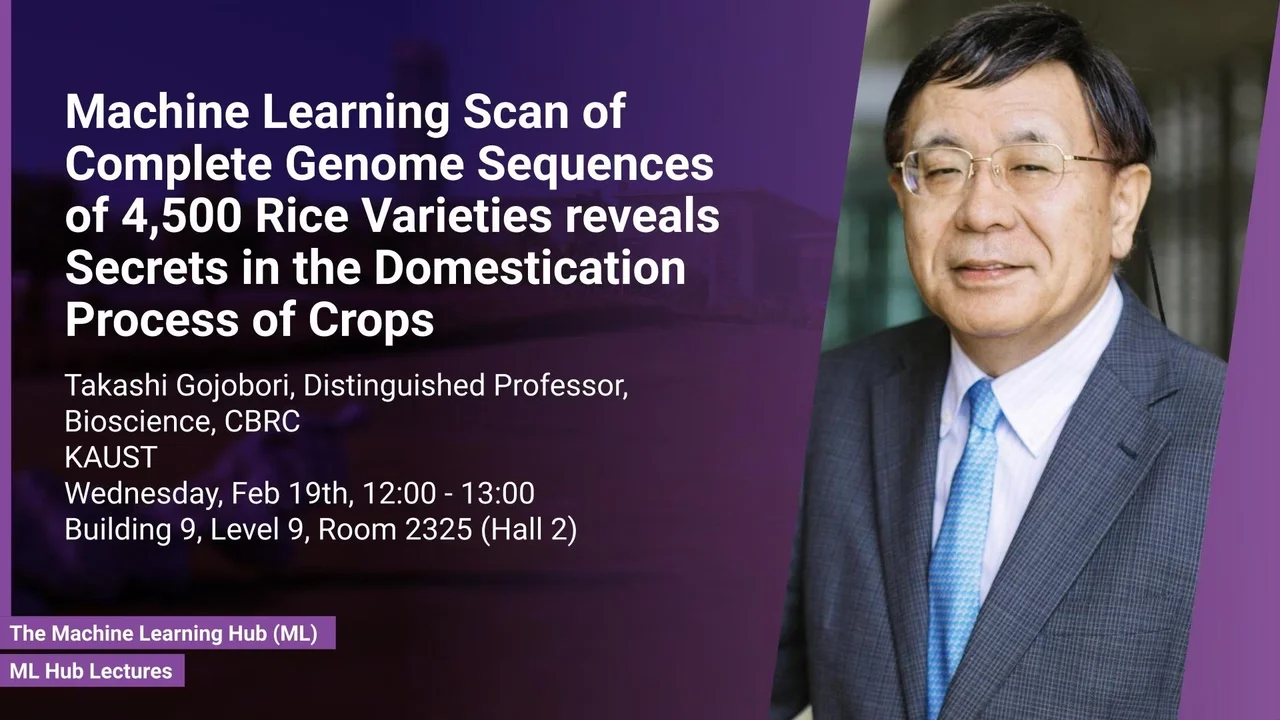
Machine Learning Scan of Complete Genome Sequences of 4,500 Rice Varieties reveals Secrets in the Domestication Process of Crops
- Takashi Gojobori, Distinguished Professor, Bioscience
B9 L2 H2 R2325
In the history of humankind, domestication was invented as anthropogenic evolution that fulfills mankind’s critical food demand. The domestication is simply based on mating processes and subsequent selection processes to pick up better hybrid offspring that have advantageous combinations of genomes. Taking advantage of machine learning classifier, we discovered a number of sub-genomic regions that have been incorporated in the rice genomes through production of hybrid offspring during domestication. This so-called “introgression” event is disclosed as an essential key of domestication process. This eventually leads to construction of the AI-aided Smart Breeding Platform to accumulate all the breeding histories of crop species into an Integrated Breeding Knowledgebase.
Overview
Abstract
In the history of humankind, domestication was invented as anthropogenic evolution that fulfills mankind’s critical food demand. The domestication is simply based on mating processes and subsequent selection processes to pick up better hybrid offspring that have advantageous combinations of genomes. Taking advantage of machine learning classifier, we discovered a number of sub-genomic regions that have been incorporated in the rice genomes through production of hybrid offspring during domestication. This so-called “introgression” event is disclosed as an essential key of domestication process. This eventually leads to construction of the AI-aided Smart Breeding Platform to accumulate all the breeding histories of crop species into an Integrated Breeding Knowledgebase.
Brief Biography
Takashi Gojobori is a Distinguished Professor of Bioscience and the Associate Director of the Computational Bioscience Research Center (CBRC). Prof. Gojobori is the Principal Investigator of the Comparative Genomics and Genetics Lab.
